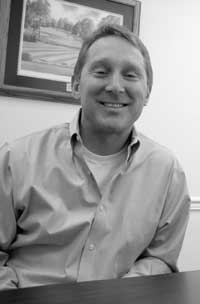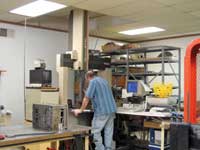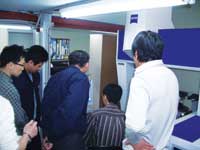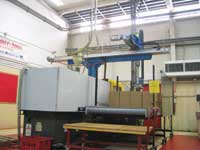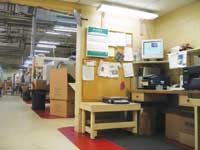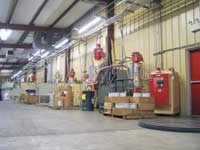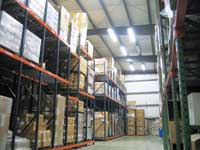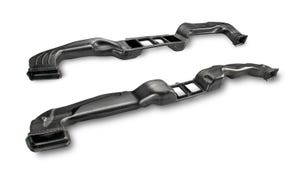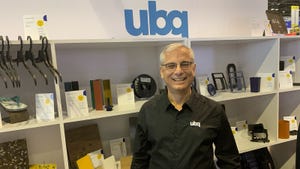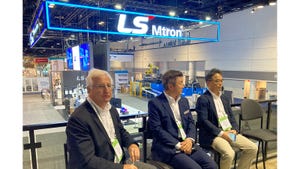IMM's Plant Tour: Healthcare business heats up
A sunny Southern California molder strikes gold with medical molding and contract manufacturing.If you were bombarded by blizzard conditions last month, you’ll enjoy the following thought exercise. Let’s drive south from Los Angeles along the coast toward San Diego. The sun is, of course, shining. The hot, dry fragrance of desert plants fills the air. We pass Camp Pendleton, and suddenly the Pacific Ocean comes into view, sparkling and slate blue.
April 1, 2008
A sunny Southern California molder strikes gold with medical molding and contract manufacturing.If you were bombarded by blizzard conditions last month, you’ll enjoy the following thought exercise. Let’s drive south from Los Angeles along the coast toward San Diego. The sun is, of course, shining. The hot, dry fragrance of desert plants fills the air. We pass Camp Pendleton, and suddenly the Pacific Ocean comes into view, sparkling and slate blue. Shortly after, we arrive at a new industrial park in Carlsbad, home to the equally sparkling Plastics Engineering & Development Inc. (PEDI). If this virtual trip didn’t lift your spirits, IMM can guarantee that the real thing works wonders.
Targeted effort
Our host, president and CEO Jack Sparacio, has traded his Midwestern roots for a permanent spot on the West Coast. He is also an alumnus of Johnson & Johnson, American Hospital
|
Supply, and IMED (now part of Cardinal Health), a bevy of powerhouse medical device firms. So it comes as no surprise that his eye is on the medical prize. In fact, 80% of revenue last year came from medical customers, and the contract manufacturing component of that revenue is growing.
“This is a strategic growth area, not just for PEDI, but also for most suppliers to the medical device market,” Sparacio says. “We’ve seen 20% growth in this area over the past two years.”
At a time when many molders find it challenging to stay the course, PEDI seems to have hit on a winning formula. “One of our advantages is that we’re located in Southern California, one of four megacenters of medical manufacturing in the U.S. In addition, we have a proximity to Mexico that enables us to outsource assembly and packaging functions as needed.
“We work with a company called Integra Biotechnical,” Sparacio continues. “We send parts to Integra’s warehouse a mile from here. They send them to Mexico two to three times per week, and then ship the assemblies back as they are produced. We have a customer in the Midwest that asked us to mold and assemble a tracheotomy tube, and having us outsource the assembly in this way makes sense for them.”
As a result of the ability to outsource to Mexico, Sparacio says PEDI is not at risk for competition from Asia. “The distances are too great for the just-in-time shipping that customers typically require,” he says. About 15% of revenue for this mainly medical molder comes from customers in electronic connector, recreation, consumer, industrial, and irrigation markets.
Finally, Kirby, which makes golf course markers, represents 5% of revenue. PEDI purchased the business several years ago. The markers are molded from ABS with a UV inhibitor and then coated. According to Sparacio, the European and Asian markets for this product are heating up.
Molding floor activity
As we start our stroll through the plant, it’s clear that this facility was designed for medical molding prior to its construction. For example, all resin, water, and electricity are fed from an underground crawlspace to avoid contamination. There are no overhangs that could collect dust. A 3-ton overhead crane handles all mold change requirements. Throughout the plant, there is a controlled environment. Humidity is regulated, as is particulate count. “We perform white room molding in the traditional molding areas,” says Sparacio.
Before we tour, here are a few pieces of background information. PEDI currently has 350 tools in-house, with 300 SKUs. It produces millions of parts annually, and serves more than 100 customers. The company also maintains its own fleet of delivery trucks for customers within a 75- to 80-mile radius, complete with PEDI logo and tagline, “Injection Molding/Medical Contract Manufacturing Worldwide.”
On to the tour. At the first workcell we encounter, a battery casing is being molded from PP and removed by a Star Automation robot, which also cuts the sprue. Oxygen tank collars in colorful yellow-orange are being molded at the next press, which includes an overhead robot for removal. Because they are so thick, the collars require water bath cooling to eliminate shrinkage. They are then pad printed in the same workcell, sent to the secondary operations area to be machined, and are inspected prior to packing and shipping.
A rigid exoskeleton for a knee brace, molded from thermoplastic urethane supplied by BASF, is another product that requires a secondary operation. Technicians glue foam inside the molded brace to complete assembly.
The next part we look at is being molded within a tent to reduce particulate contamination. It’s a blow-up collector tip for internal exams, and is molded from TPE. Compressed air is the secret to getting the parts off the two-cavity tool without damage, according to Sparacio. An 18-ton all-electric Sumitomo micromolding press runs unattended at one end of the molding floor, producing parts that are used in several subassemblies and assemblies.
It’s interesting to find regrind units on the shop floor, given that PEDI is not allowed to use regrind for medical parts. Of course, they can resell it or use it to mold the Kirby golf markers.
Cleanroom specifics
PEDI operates a Class 100,000 cleanroom about 6000 ft² in size. The cleanroom houses nine machines, and technicians perform molding, inspection, and assembly within its walls.
Here, Plexiglass windows ensure that there is no risk of cross contamination. No cardboard is allowed, only blister packs, to eliminate the introduction of particulates. Workers must don gloves, hairnets, booties, and coats before moving from the airlock to the cleanroom. Once sterilizable devices are molded, they are shipped to vendors. PEDI contracts for sterilization with Mentor, OH firm Steris Corp.
One of the IM machines is a 110-ton Sumitomo with a Yushin robot. This workcell molds a 384-well tray for biological testing. To make the tray, material is backmolded onto a rigid film insert (also known as film insert molding). No human hands can touch the trays, because the film contains the growth medium needed for the tests, which provide high-tech protein chemical analysis. Critical requirements for this application include flatness, which cannot vary by more than 0.001 inch, and consistency in production, which is monitored by SPC.
We move from the cleanroom to a separate white room. Here, one of the more complex contract manufacturing projects at PEDI is being produced. Called a CPAP machine, it delivers oxygen into a human airway through a specially designed mask. The positive flow of air creates enough pressure to keep the airway open, and the unit is used by EMS departments nationwide.
To manufacture the product, PEDI buys 143 parts and molds the yellow housing and cap. Subassemblies are combined to make the units in a white room separate from the main plant. Each unit is then 100% tested for guaranteed operation. Finally, PEDI molds clear parts for the mask and hose, which are then assembled with purchased foam and kitted in the same white room. What makes this project unique is that PEDI has also become the service arm for these devices. Units are sent here from the field to be recalibrated as part of the contract manufacturing agreement.
|
PEEK expertise
PEDI has been working with medical-grade PEEK (polyetheretherketone) material for the manufacture of implantable devices for the past two years, one of only a handful of California molders using this material. “It’s difficult to work with due to the fact that it requires 400°F temperatures to mold, specialized equipment, and is one of the most expensive materials,” he says. This grade, named 450G, requires pristine conditions for production and extensive documentation to meet FDA requirements for implantable devices.
Sparacio took specific steps in order to establish PEDI as a technology leader in injection molding with medical-grade PEEK, from extensive onsite training with Victrex, the material manufacturer, to acquiring specialized equipment and hiring toolmakers with PEEK expertise.
One application in production at PEDI involves a spacer that realigns the spine and is surgically implanted to give mobility back to patients with a variety of vertebral ailments.
“Most molders historically have machined parts made with PEEK, but by injection molding we are able to provide better quality because machining leaves edges and burrs. We do this at a lower per-part cost, and deliver repeatability as injection molded parts are 99.9% the same throughout,” Sparacio says.
Aside from implantable medical products, PEDI has also used PEEK for industrial applications. “And down the line, we plan to carve out a manufacturing area for PEEK with several dedicated cells,” Sparacio adds.
Web-exclusive: Game-changing moves
Two past events at PEDI have been significant in helping to shape the company's outlook today. Five years ago, and every year since, the company received certification from the State of California's Food & Drug Branch (FDB) to manufacture medical devices. The FDB, in partnership with the FDA, issued a state device manufacturing license after PEDI demonstrated compliance with federal Good Manufacturing Practice Quality System Regulation. This license is renewed annually and requires periodic inspections. It ensures that PEDI can continue to operate and grow its medical contract manufacturing business.
Last year, the company acquired the assets of Nytronics, a 2500-ft² nearby medical molder, in an all-cash deal (terms undisclosed). This move expanded PEDI's long-term customer base and should enable Nytronics to grow in the future, according to Sparacio, by eliminating production constraints.
About the Author(s)
You May Also Like

